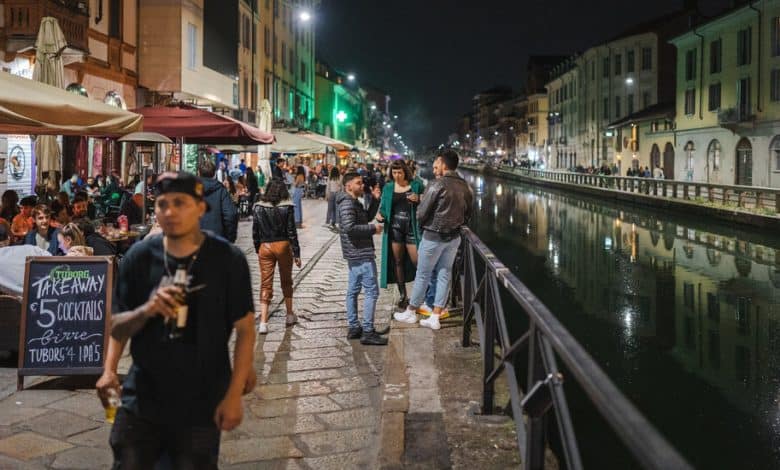What Happens When a Happening Place Becomes Too Hot

Packed bars with carousing revelers spilling onto clogged streets. Takeaway booze swigged by drunken tourists and students. Earsplitting volumes in once quiet residential neighborhoods long after midnight.
When Milan’s authorities embarked years ago on plans to promote the city as a buzzy destination by building on its reputation as Italy’s hip fashion and design capital, the resulting noise and rowdy overcrowding were perhaps not quite what they had in mind.
Now, after years of complaints and a series of lawsuits, the city has passed an ordinance to strictly limit the sale of takeaway food and beverages after midnight — and not much later on weekends — in “movida” areas, a Spanish term that Italians have adopted to describe outdoor nightlife. It will go into effect next week and be in force until Nov. 11.
Outdoor seating for restaurants and bars will also end at 12:30 a.m. on weekdays, and an hour later on weekends, so that people who want to party longer will have to do so indoors.
The businesses that have profited from Milan’s success in promoting itself as a happening city are grumbling.
One trade association complained that the ordinance was so strict that Italians would no longer be able to take a late-night stroll with a gelato in hand.
